There are many different voices on a movie set: the director, who is responsible for the look and feel of the film, the actors, who bring their own sensibilities of craft with them to each movie, and the studios and producers, who are responsible for overseeing the financial interests of the film. So who’s the boss? And who makes the final decisions? If there were an easy answer to that question, there wouldn’t be so many movies that made changes because of actor feuds.
Some actors are notoriously hard to work with. Think that Bill Murray is simply a sweet, funny, comedic genius? Think again. He’s got a reputation for being unkind to people he doesn’t like: just ask Lucy Liu. Several directors also have a bad reputation. Megan Fox publicly compared Michael Bay’s on-set behavior to Hitler, so it’s no wonder why she was subsequently written out of Transformers: Dark of the Moon. These are just a few of the notorious behind-the-scenes fights that changed film plots or the direction of a project.
1. Batman Forever
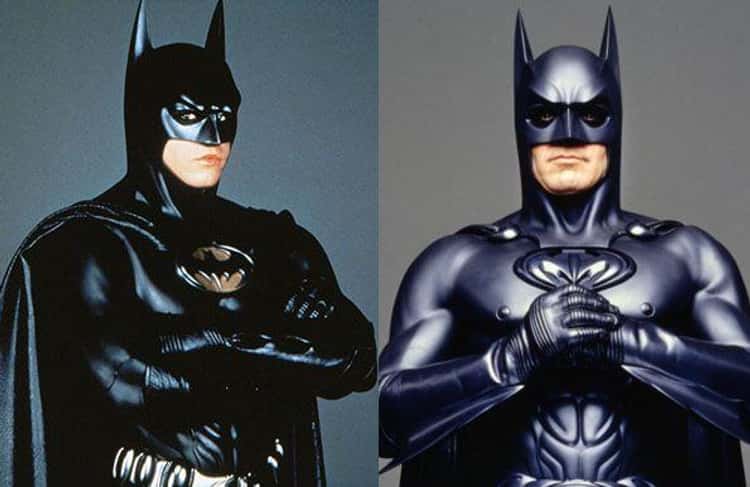
In the early ’90s, actor Val Kilmer garnered a reputation for being hard to work with. On the set of Batman Forever (1995), director Joel Schumacher witnessed the reason for Kilmer’s bad rep firsthand. Schumacher had a conversation with Kilmer about his poor treatment of others on the set, and the talk resulted in Kilmer not speaking with the director for several weeks.The fallout from this feud may not have affected this particular Batman movie, which did well at the box office, but it certainly affected Kilmer’s career: this was a one-and-done performance for Kilmer as Batman. The franchise and Schumacher chose to recast the role of the Caped Crusader, bestowing the black cowl upon George Clooney in 1997’s Batman & Robin.
2. Once Upon a Time in America
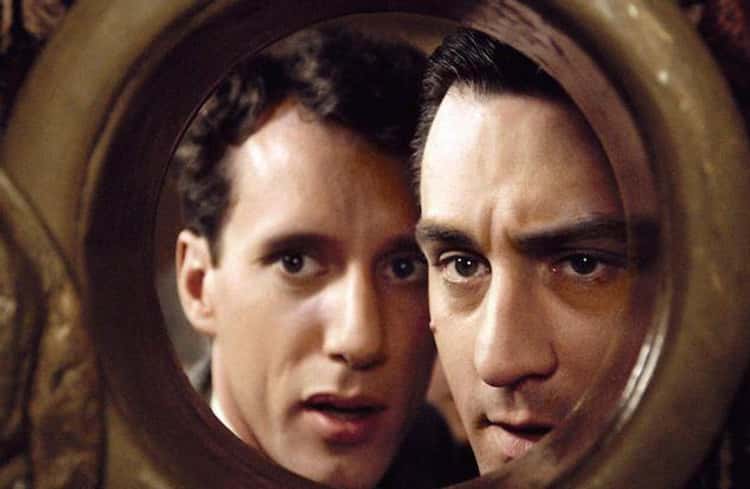
Once Upon a Time in America, Sergio Leone’s epic ode to American gangster films, is a classic case of studio interference. Leone’s original tale of Jewish gangsters in prohibition-era New York City ran for 229 minutes. Leone and studio heads clashed over the film’s running time, and distributors subsequently edited the film down to a mere 139 minutes. They also turned the film’s non-linear narrative into a chronological tale, a move that critics widely criticized. The butchering made the story very difficult to understand, and it ultimately resulted in box office failure. However, Leone’s original vision is available for viewers who don’t mind the four-hour running time.
3. Iron Man
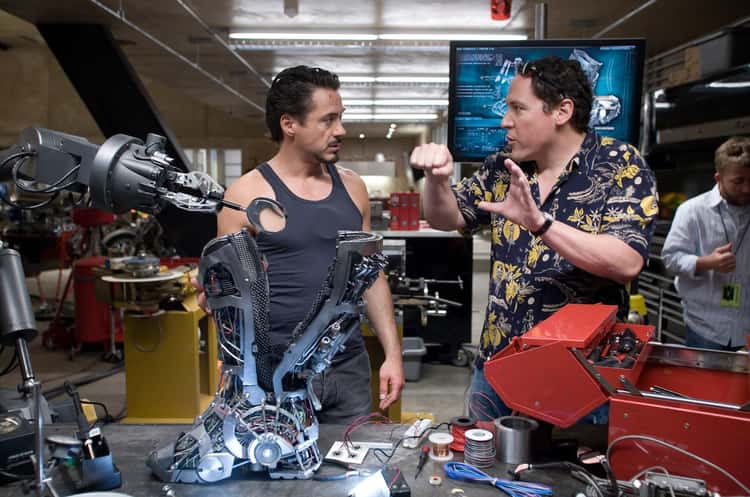
Due to Iron Man‘s enormous success, it’s hard to remember what a mess Robert Downey Jr. was before putting on the suit. His battle with drugs and alcohol led to multiple arrests, and it seemed like the talented actor’s career was over. However, sometimes all it takes for a comeback is to have one very persistent man in your corner. Director Jon Favreau battled Marvel to cast Downey as Iron Man. The studio rejected the idea several times, but Favreau insisted because he knew Downey was perfect for the part. “It was my job as a director to show that it was the best choice creatively…and now the Marvel Universe is the biggest franchise in film history,” Favreau said. Sometimes feuds actually do end well.
4. American History X
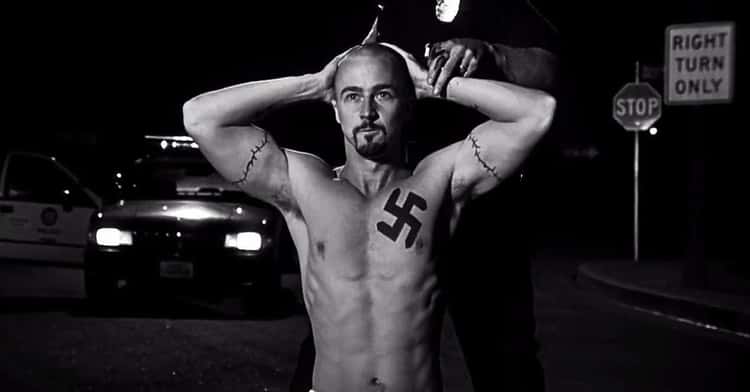
Tony Kaye is known around Hollywood for being a bit of a hothead. For his feature film directorial debut American History X, Kaye did not want to cast Ed Norton (who was later nominated for an Oscar for his performance), but finally agreed when he couldn’t find anyone else for the role. After Kaye finished editing the movie, he handed over a 96-minute cut to New Line. When the studio and Norton responded with several notes and questions about the cut, Kaye reportedly responded with a temper tantrum.New Line wound up booting the director from the editing room, and Kaye asked for his name to be entirely removed from the project. His request was denied. New Line added 40 minutes of footage to the controversial film, which has gone on to become a cult classic and film school staple.
5. Cop Out
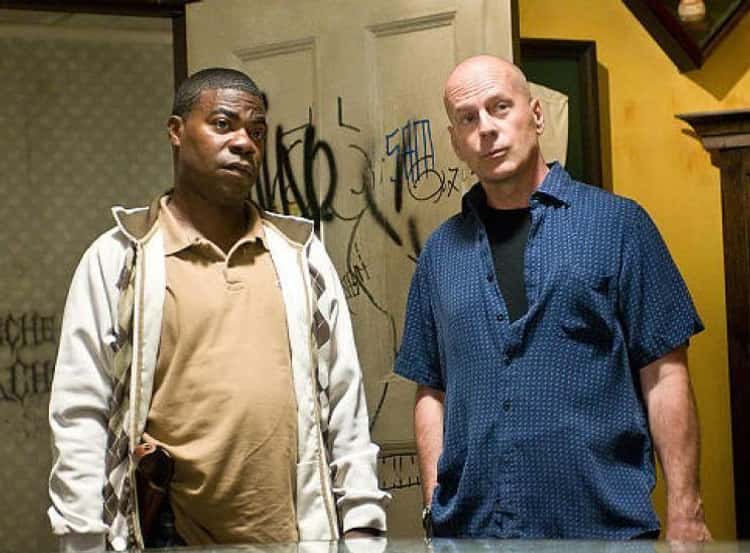
Cop Out (2010) was both a box office bomb and critical punching bag. The film was called joyless, poorly paced, cliched, poorly executed, and half-baked. But who was to blame when this big-budget movie tanked? Was it director Kevin Smith, the writers, or the film’s stars Bruce Willis and Tracy Morgan?According to Smith, the brunt of the blame should be placed on Willis’s shoulders because of his attitude on the set. Smith talked about the experience of working with Willis on Marc Maron’s WTF Podcast: “It was difficult. I’ve never been involved in a situation like that where one component is not in the box at all. It was f*ckin’ soul crushing. I mean, a lot of people are gonna be like, ‘Oh, you’re just trying to blame the movie on him.’ No, but I had no f*cking help from this dude whatsoever.”
6. Maidstone
Norman Mailer’s experimental 1970 film Maidstone is most well-known for the fight that broke out between Mailer and Rip Torn. In the film, Mailer plays a filmmaker who is running for President while also working on a film project. Rip Torn plays his money-grabbing brother-in-law Raoul. The film was shot over the course of five days and drugs were readily available and consumed heartily. Towards the end of the project, it seemed as if reality and fiction had blended together. At one point on set, Torn went after Mailer with a hammer and a massive fight broke out between the men. Cameras were serendipitously rolling during the brawl, and Mailer put the fight into the final cut of the film.
7. Alien 3
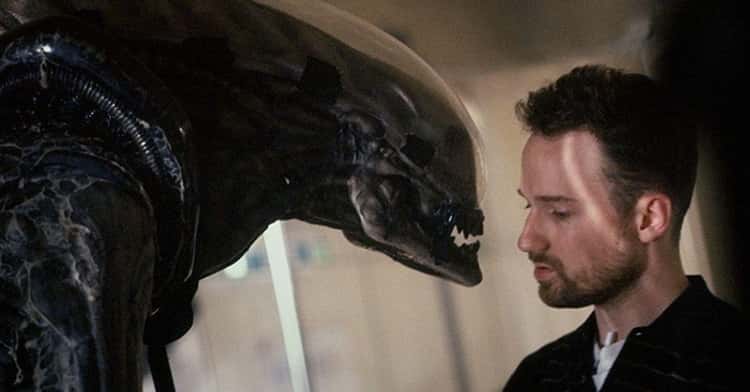
David Fincher was the hottest music video director of the 1980s and ’90s before directing his first feature-length film, Alien 3, in 1992. The experience was so awful for Fincher that after the film was complete, he vowed to never direct another movie again. Thankfully, he later changed his mind, as Fincher has become one of the most talented auteurs of modern-day cinema. The studio execs and Fincher battled over creative differences, with the execs calling for rewrites to the script and footage re-shoots, most of which the director was adamantly against. Fincher ultimately disowned the film, which was totally panned by critics.
8. All the Pretty Horses
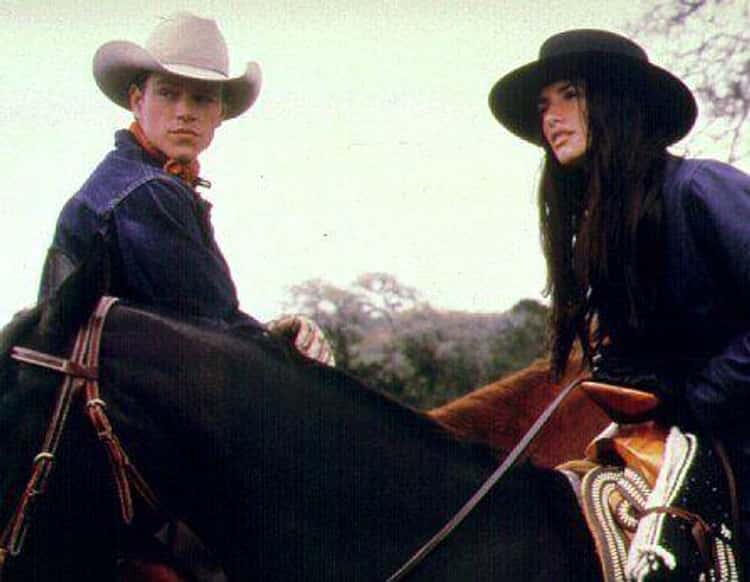
Here’s another battle between director and producer. This time, it’s Billy Bob Thornton vs. Harvey Weinstein. Thornton directed an adaption of Cormac McCarthy’s novel All the Pretty Horses (2000). His vision was an epic western with a running time of almost four hours. Weinstein battled Thornton over the movie’s length, and of course, Weinstein won. The theatrical cut ended up being under two hours. Additionally, the film’s original score by Daniel Lanois was also replaced. All the Pretty Horses wound up making only $18 million at the box office against a budget of $50 million. The movie was critically panned.
Matt Damon came out in defense of Thornton’s film during an interview with Playboy in 2012. He was asked if there was one film that made him want to pack it all in. Damon responded:”Everybody who worked on All the Pretty Horses took so much time and cared so much. As you know, the Cormac McCarthy book is set in 1949 and is about a guy trying to hold on to his old way of life. The electric guitar became popular in 1949, and the composer Daniel Lanois got an old 1949 guitar and wrote this spare, haunting score. We did the movie listening to his score. It informed everything we did. We made this very dark, spare movie, but the studio wanted an epic with big emotions and violins. They saw the cast, the director, Billy Bob Thornton, and the fact that we spent $50 million, and they never released our movie—though the cut still exists. Billy had a heart problem at that time, and it was because his heart f*cking broke from fighting for that film. It really f*cked him up. It still bothers me to this day.”
9. Blade Runner
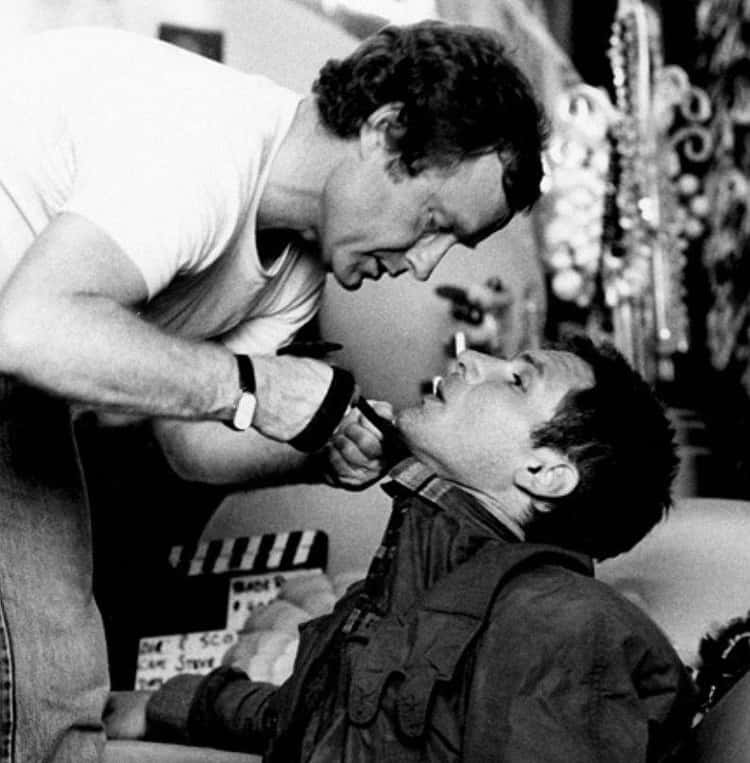
Now, Blade Runner is considered a sci-fi noir classic, but at the time of its release, the movie totally flopped at the box office. The well-known story is that director Ridley Scott wanted to use a twist for the film’s ending which hinted that Deckard (Harrison Ford) was actually a Replicant. Ford was completely against the idea, and it caused a feud between the actor and director. Scott ignored Ford and shot the scenes that would signal at Deckard’s true nature.Since Scott wasn’t listening to Ford, the actor decided to talk to the studio about his opinion. The studio agreed with Ford, and the scenes were cut. Thankfully, Scott was later able to add the deleted scenes in his 1992 Director’s Cut. It makes for a more interesting, thought-provoking story with a realm of possibilities.
